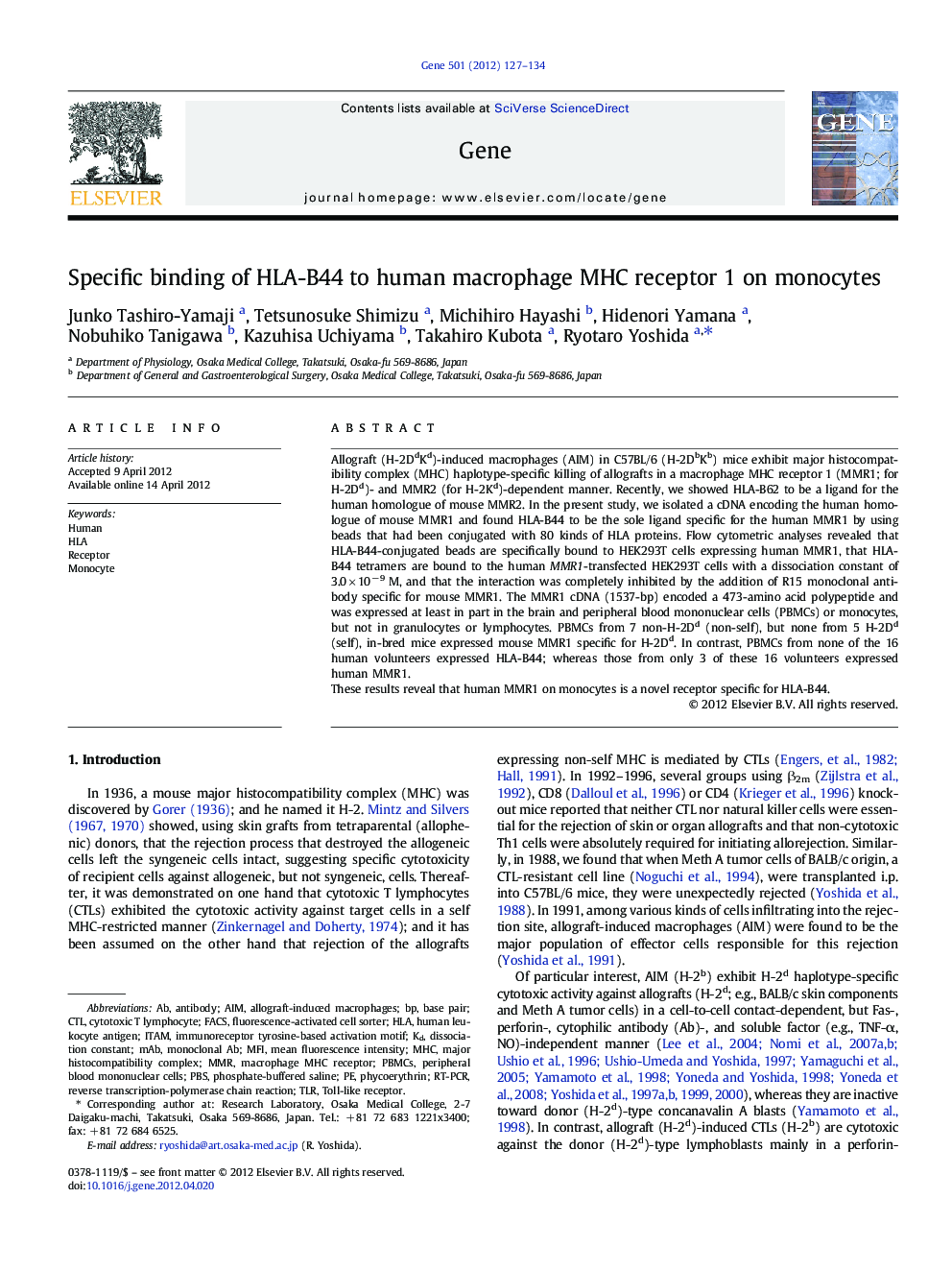| Article ID | Journal | Published Year | Pages | File Type |
|---|---|---|---|---|
| 2817860 | Gene | 2012 | 8 Pages |
Allograft (H-2DdKd)-induced macrophages (AIM) in C57BL/6 (H-2DbKb) mice exhibit major histocompatibility complex (MHC) haplotype-specific killing of allografts in a macrophage MHC receptor 1 (MMR1; for H-2Dd)- and MMR2 (for H-2Kd)-dependent manner. Recently, we showed HLA-B62 to be a ligand for the human homologue of mouse MMR2. In the present study, we isolated a cDNA encoding the human homologue of mouse MMR1 and found HLA-B44 to be the sole ligand specific for the human MMR1 by using beads that had been conjugated with 80 kinds of HLA proteins. Flow cytometric analyses revealed that HLA-B44-conjugated beads are specifically bound to HEK293T cells expressing human MMR1, that HLA-B44 tetramers are bound to the human MMR1-transfected HEK293T cells with a dissociation constant of 3.0 × 10− 9 M, and that the interaction was completely inhibited by the addition of R15 monoclonal antibody specific for mouse MMR1. The MMR1 cDNA (1537-bp) encoded a 473-amino acid polypeptide and was expressed at least in part in the brain and peripheral blood mononuclear cells (PBMCs) or monocytes, but not in granulocytes or lymphocytes. PBMCs from 7 non-H-2Dd (non-self), but none from 5 H-2Dd (self), in-bred mice expressed mouse MMR1 specific for H-2Dd. In contrast, PBMCs from none of the 16 human volunteers expressed HLA-B44; whereas those from only 3 of these 16 volunteers expressed human MMR1.These results reveal that human MMR1 on monocytes is a novel receptor specific for HLA-B44.
► Isolation of a cDNA encoding human macrophage MHC receptor 1 from human monocytes. ► HLA-B44 was the sole ligand specific for the human macrophage MHC receptor 1. ► The dissociation constant was 3.0 × 10− 9 M.
